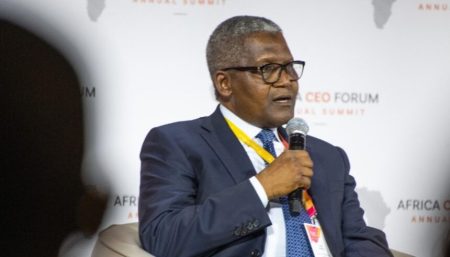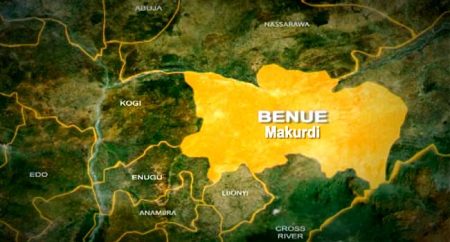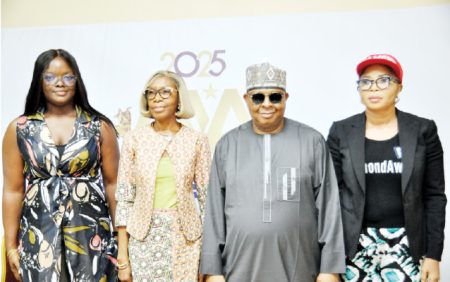Former Vice President Atiku Abubakar launched a pointed critique against the incumbent administration, accusing it of strategically manipulating poverty as a tool for political control. Speaking at the 60th birthday lecture of former Rivers State Governor, Rotimi Amaechi, Atiku centered his argument on the notion of “weaponizing poverty,” asserting that the government deliberately uses economic hardship to suppress and manipulate the populace. He illustrated this claim by contrasting the relative prosperity he witnessed in Kano State during his youth with the current pervasive poverty and homelessness plaguing the region, alleging that a state agency tasked with alleviating this hardship was instructed by federal authorities to cease its operations. This act, according to Atiku, demonstrates a calculated effort to perpetuate and exploit poverty for political gain. He pledged to actively resist this alleged manipulation, positioning himself and Amaechi as key figures in an alliance dedicated to minimizing poverty and dismantling the purported state machinery used to weaponize it.
Nasir El-Rufai, the former Governor of Kaduna State, echoed Atiku’s concerns about the country’s dire situation, describing it as the most precarious period since Nigeria’s amalgamation in 1914. He acknowledged the widespread discussion of “weaponizing poverty” but offered a slightly different perspective. While concurring with the devastating impact of poverty, El-Rufai argued that its weaponization may not be a deliberate political strategy but rather a consequence of consistently electing incompetent leaders. He contended that these leaders, lacking the knowledge and skills to govern effectively, inadvertently exacerbate poverty through their ineptitude. El-Rufai emphasized the importance of selecting competent and committed leaders in future elections to reverse this trend and steer Nigeria back on course. He criticized the current crop of leaders as “urban bandits,” highlighting the need for a change in leadership direction in 2027.
Contrary to both Atiku and El-Rufai’s focus on the government, Amaechi, the birthday celebrant, directed his criticism towards the Nigerian citizenry. He argued that the root problem lies not with the leaders but with the followership, whom he accused of apathy and inaction. He pointed to the government’s increase in fuel prices following citizen protests as evidence of this apathy, suggesting that the leaders’ disregard for the populace stems from the knowledge that they face no real consequences for their actions. Amaechi expressed his shame and frustration with the nation’s apparent unwillingness to progress, questioning the collective desire to genuinely function as a cohesive and progressive country. His perspective provides a stark contrast to the previous speakers, shifting the blame from the political elite to the citizens themselves.
Atiku’s accusation of weaponized poverty, particularly his anecdote about the Kano state agency, paints a picture of a government actively working to perpetuate hardship. His claim, if substantiated, reveals a deeply disturbing political strategy with far-reaching implications for the Nigerian people. He positions himself and Amaechi as champions against this alleged manipulation, promising to prioritize poverty reduction and fight against the alleged misuse of state power. His narrative focuses on the intentional actions of the current administration, portraying them as actively working against the interests of the poor.
El-Rufai’s perspective adds nuance to the discussion. While acknowledging the severity of poverty, he attributes it to incompetence rather than deliberate malice. This presents an alternative interpretation of the situation, suggesting that the problem lies not in a malicious intent but in a lack of capacity. His focus on the “urban bandits” holding leadership positions highlights a systemic issue of unqualified individuals occupying positions of power. El-Rufai’s argument calls for a more discerning electorate that prioritizes competence and commitment in future elections.
Amaechi’s critical view of the followership presents a third angle to the problem. He shifts the focus from the government’s actions to the citizens’ reactions, or lack thereof. By arguing that the problem lies in the apathy and inaction of the people, he challenges the notion of a purely top-down oppression. His statement that “no Nigerian leader cares for you” underscores his belief that the citizens’ lack of response emboldens the government to act with impunity. Amaechi’s perspective emphasizes the importance of active and engaged citizenry in holding leaders accountable and driving positive change.
The contrasting viewpoints of these prominent figures highlight the complex interplay of factors contributing to Nigeria’s current predicament. Atiku points fingers at deliberate political manipulation, El-Rufai at systemic incompetence, and Amaechi at citizen apathy. These divergent perspectives paint a multifaceted picture of the challenges facing Nigeria, underscoring the need for a comprehensive approach to address the nation’s deep-seated issues. The conversation sparked at Amaechi’s birthday lecture reveals a nation grappling with its identity and future direction, highlighting the urgent need for both effective leadership and active citizen participation in shaping a more prosperous and equitable future.
The accusations of weaponized poverty, coupled with the critiques of incompetent leadership and apathetic citizenry, create a complex and concerning narrative of Nigeria’s current state. The differing perspectives highlight the multiple layers of challenges the nation faces, emphasizing the need for a multifaceted approach to address these intricate issues. The dialogue initiated at the lecture underscores the importance of continuous critical engagement and the active participation of both leaders and citizens in forging a path towards a more promising future for Nigeria. The combined viewpoints offer a framework for analyzing the nation’s difficulties, prompting a deeper reflection on the roles and responsibilities of both the government and the governed in shaping a more just and prosperous society.













